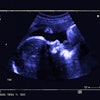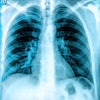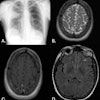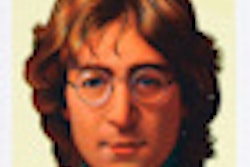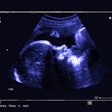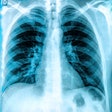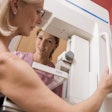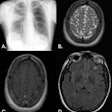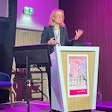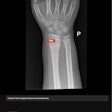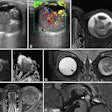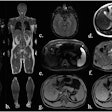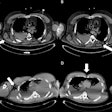
LONDON (Reuters) - Scientists who conducted a major international study into the genetics of breast cancer say they can now classify the disease into 10 subtypes -- a finding that points to more accurate, tailored treatment for individual patients in the future.
In research published in the journal Nature on Wednesday, a team led by scientists at the Cancer Research UK (CRUK) charity also found several completely new genes that drive breast cancer, offering potential targets for new types of drugs.
Carlos Caldas, who co-led the study at CRUK's Cambridge Research Institute and the University of Cambridge, said the findings mean breast cancer should now be seen as an "umbrella term" for a larger number of diseases.
"Essentially we've moved from knowing what a breast tumor looks like under a microscope to pinpointing its molecular anatomy," he said.
"This research won't affect women diagnosed with breast cancer today. But in the future ... patients will receive treatment targeted to the genetic fingerprint of their tumor."
Breast cancer is the most common cancer among women worldwide, accounting for 16% of all female cancer cases, according to the World Health Organization.
A study last year by the Institute for Health Metrics and Evaluation in the United States found that global breast cancer cases have more than doubled in just three decades, from 641,000 cases in 1980 to 1.6 million cases in 2010 -- a pace that far exceeds global population growth.
For the genetic study, Caldas's team worked with the BC Cancer Agency, based in Vancouver, Canada, and analyzed 2,000 tumor samples taken from women diagnosed with breast cancer between five and 10 years ago.
To get a detailed picture, they studied both DNA and RNA -- which translates DNA into proteins -- to find out which genes are switched on or off in each tumor sample.
Molecular map
In a briefing for reporters, the researchers explained how this combined analysis of DNA and RNA helped reveal the identity of genes known as oncogenes -- the drivers of cancer -- and of tumor suppressor genes, which protect against cancer.
This helped them reclassify breast cancer into 10 new categories based on gene activity, rather than current tests, which look for the presence of so-called biomarkers such as estrogen receptors or the cell surface receptor HER2.
Drugs such as the generic tamoxifen, and aromatase inhibitors like AstraZeneca's Arimidex or Novartis's Femara, which block estrogen activity, are already used in targeted treatment for breast cancer patients whose tumors produce large amounts of estrogen receptor (ER).
Roche's Herceptin is another targeted breast cancer drug which is given to patients whose tumors depend on HER2.
Harpal Kumar, CRUK's chief executive, said the new findings would help oncologists make far more precise diagnoses for each breast cancer patient -- "and that will enable us to make sure that we really target the right treatment to the right woman."
The study "changes the way we think about breast cancer -- no longer as one disease, but actually as 10 quite distinct diseases depending on which genes are really switched on and which ones aren't," he said.
Samuel Aparicio, who co-led the study with the team in Vancouver, described the reclassification into 10 subtypes as a new "molecular map" of breast cancer which he said pointed to the potential development of new medicines.
The scientists said the next step would be to find out how specific molecular patterns make tumors grow, and to seek out the faults that might respond to new drugs in the future.
They said the information from this study would be made available to scientists worldwide in an effort to boost drug discovery and development.
By Kate Kelland
Source: http://bit.ly/JdG0P6
Nature, online April 18, 2012.
Last Updated: 2012-04-18 14:10:02 -0400 (Reuters Health)
Copyright © 2012 Reuters Limited. All rights reserved. Republication or redistribution of Reuters content, including by framing or similar means, is expressly prohibited without the prior written consent of Reuters. Reuters shall not be liable for any errors or delays in the content, or for any actions taken in reliance thereon. Reuters and the Reuters sphere logo are registered trademarks and trademarks of the Reuters group of companies around the world.
